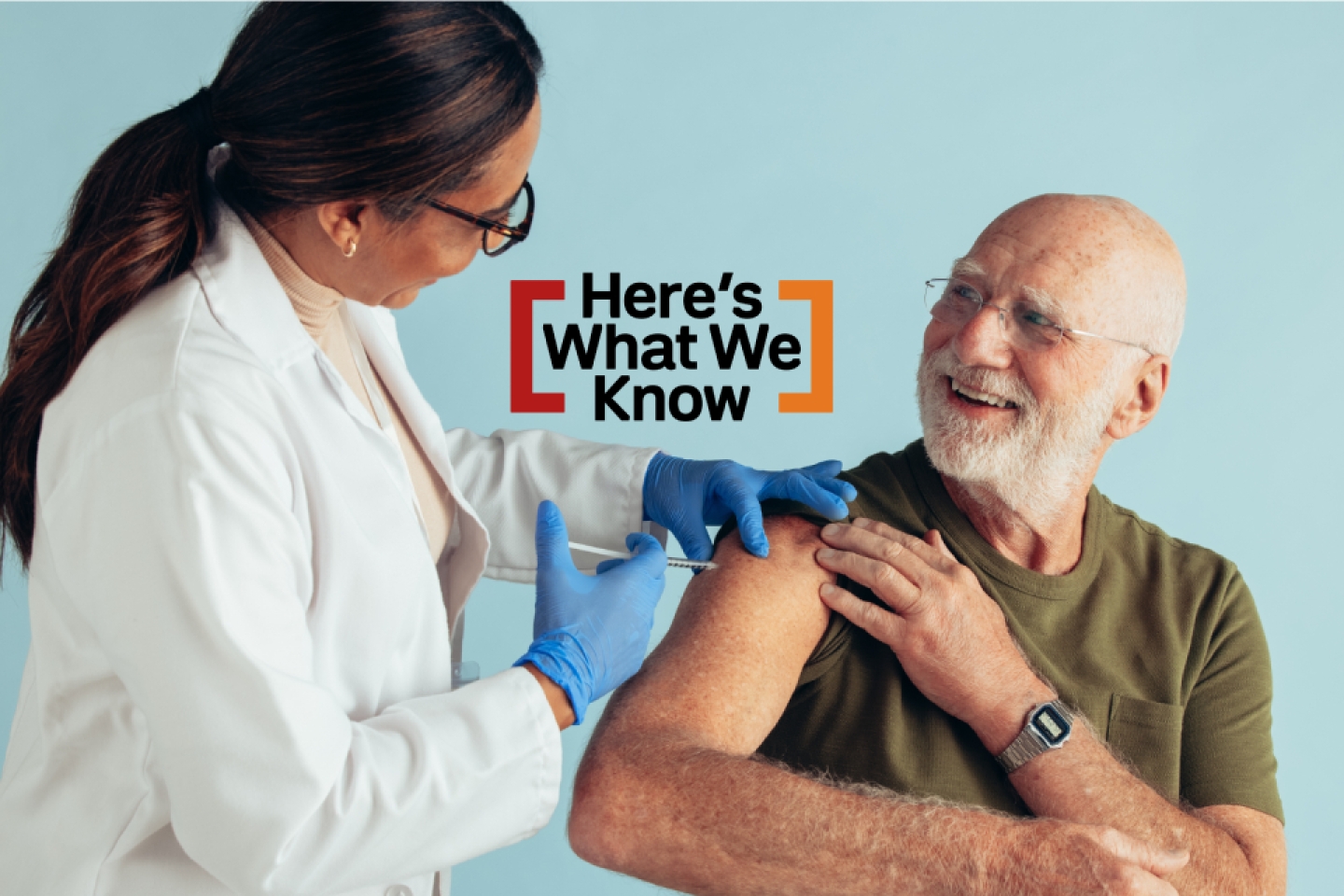
From eradicating deadly diseases to preventing seasonal outbreaks, vaccines continue to protect individuals and strengthen communities.
"Without a doubt, vaccines are one of the greatest achievements of modern medicine," says Dr. Trip Gulick, Chief of the Division of Infectious Diseases at Weill Cornell Medicine. Through their widespread use, vaccines are credited with saving millions of lives and transforming public health across the globe.
As new vaccines are introduced and recommendations evolve, it’s important to understand their history, safety and relevance—especially for parents and caregivers as they strive to make informed decisions around their families’ health.
Vaccines have played a pivotal role in reducing and even eliminating some of the world’s deadliest diseases:
These milestones demonstrate how vaccines not only protect individuals but also contribute to herd immunity, reducing the spread of disease and protecting those who cannot be vaccinated due to their age, immunocompromised status or underlying medical conditions.
Vaccines undergo a rigorous development and approval process before they are made available to the public. Major steps in the process include:
Most vaccine side effects are mild and temporary, such as soreness at the injection site, a low-grade fever, or febrile seizures in children. Serious adverse events are rare and are closely monitored through systems like the Vaccine Adverse Event Reporting System (VAERS).
Normally, the Advisory Committee on Immunization Practices (ACIP) plays a critical role in shaping vaccine policy. This group of medical and public health experts reviews scientific data to make evidence-based recommendations on vaccine use and eligibility in various patient populations.
The committee’s recommendations influence:
The process also ensures that vaccines remain accessible and equitably distributed across all communities. When ACIP stops recommending a vaccine, insurers are no longer required by federal law to cover it. That could make a vaccine much more expensive and less available.
“It is important that ACIP share its recommendation with the director of the Centers for Disease Control and Prevention (CDC) to help provide scientifically accurate guidance and mitigate any confusion,” says Dr. Laura Riley, Obstetrician and Gynecologist-in-Chief at NewYork-Presbyterian Hospital and Chair of the Department of Obstetrics and Gynecology at Weill Cornell Medicine.
According to America's Health Insurance Plans (AHIP), health plans will continue to cover all ACIP-recommended immunizations that were recommended (as of September 1, 2025), including updated doses of the COVID-19 and flu vaccines, with no cost-sharing for patients through the end of 2026. If you are concerned or have questions on coverage, please check with your employer or insurance provider.
Parents are essential partners in public health. Vaccinating children not only protects them from serious illnesses but also helps prevent outbreaks in schools and neighborhoods.
“If you have any questions, don’t hesitate to talk to your physicians, including your pediatrician or your obstetrician if pregnant,” says Dr. Sallie Permar, Chair of the Department of Pediatrics at Weill Cornell Medicine and Pediatrician-in-Chief at NewYork-Presbyterian Komansky Children’s Hospital, a premier campus of Children’s Hospital of New York. “Enormous care and effort have gone into the development of these vaccines in the way that they've been tested and shown to be effective and safe,” she emphasizes.
Stay up to date with recommended childhood immunizations, including annual flu shot. You can also speak with your child’s doctor to learn if the COVID-19 vaccine is currently recommended for your little one.
“The best way to stay safe is through what we call ‘cocooning’ your family members who may be at higher risk of illness by boosting everyone’s immunity through vaccination,” says Dr. Karen Acker, Assistant Professor of Clinical Pediatrics at Weill Cornell Medicine.
Please discuss any concerns about your child’s vaccine schedule with your family physician or pediatrician.
According to the CDC, please review the latest guidance for the following vaccinations:
Two of the three available COVID-19 vaccines—those produced by Pfizer/BioNTech and Moderna—were developed using mRNA technology. Since 2020, 13 billion COVID shots have been administered worldwide, saving more than 14 million lives.
“We still see hospitalizations and deaths from COVID every year,” says Dr. Gulick, “making it even more important to stay current with your COVID booster shots.”
The vaccine’s side effects include a sore arm and, in rare cases, inflammation of the heart muscle (myocarditis). The myths and misinformation surrounding its side effects have been thoroughly debunked, he adds.
Review this updated list of underlying medical conditions that can lead to severe cases of COVID-19. It is important to talk with your healthcare provider about your own risk.
Yes. Vaccines are extensively tested and monitored. Pediatric vaccines are specifically designed to be safe and effective for young immune systems.
No. Most vaccines use inactivated or weakened viruses that cannot cause illness. They train the immune system without causing disease.
Boosters help maintain immunity over time, especially as viruses evolve or immunity wanes.
Catch-up schedules are available. Talk to your healthcare provider to get back on track safely.
Yes. Most vaccines recommended by ACIP are covered by insurance, including Medicaid, Medicare and through the Affordable Care Act.
Absolutely. Vaccines like Tdap, RSV and flu are recommended during pregnancy to protect both mother and baby.
Vaccines are a cornerstone of public health, saving millions of lives each year by preventing hospitalization, serious disease and deaths.
"We should all get vaccinated. Vaccines are the best way to avoid illness, or if you get the illness after vaccination, which can happen, it will be a milder version,” says Dr. Gulick.
By staying informed, following expert recommendations and ensuring timely vaccinations for us and our families, we contribute to healthier, safer communities.
Learn more about Here's What We Know to explore how science is shaping tomorrow's care.